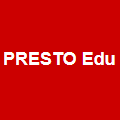Language Immersion Courses in Croatia

Byron Language School
Pula, Croatia
Byron Language School is the first private language school in Istria and the only such institution, running throughout the year. It was founded in 1991 and is also the only school that prepares candidates for the internationally recognized Cambridge ESOL exams. The languages offered include Croatian, English, French, and Italian General language courses. Other options available are English preparatory courses for Cambridge ESOL exams, FCE, CAE, CPE; Croatian language courses and workshops for foreigners; as well as creative seasonal workshops for children and adults.

Presto language school
Zagreb, Croatia
Presto language school is a Croatian language school, aimed at foreign individuals living in Croatia. The ‘Croatian for Foreigners’ study program offered at the school is run by a team of trained professionals, who help students acquire the language and get acquainted with Croatian culture and customs. For the group classes, students study with no more than 15 other participants, which ensures that some individual attention can be granted to everyone. The language used as a medium of teaching is English. Except for the basic conversational option available, there are more specialized... See full description.
Language Immersion Courses in Croatia by City:
PulaZagrebAbout Language Immersion Courses in Croatia
In Croatia, Croatian is the official language of the nation and when the country enters the European Union in 2013, Croatian will be the 24th official language of the EU. However, there are some secondary or minority languages, which are officially used by the local governments of regions where the minorities constitute more than one third of the local population. Czech, Hungarian, Italian, Ruthenian, Serbian and the Slovakian are the minority languages of Croatia. Other languages which are spoken in Croatia include French, Italian, English and German.
A lot of international students as well as tourists visit Croatia every year. Especially for the students who are willing to stay back in Croatia and study, a number of immersion courses have been designed to help them study the Croatian Language for a better understanding of the culture, tradition, etiquette, and life of Croatia, apart from an effective communication with the locals. Learning the Croatian language is possible by means of a number of organizations, which provide specialized programs and modules designed for the foreigners staying in Croatia. Many of these organizations carry out extensive courses in Croatian Studies.
Generally, these institutes provide curriculums that last for 4 weeks with each module of 110 hours. Of these 110 hours, 965 hours are compulsory and the rest are generally facultative classes, with each of them lasting for 45 minutes (though at times, additional hours to study Croatian in Croatia are also offered). The additional classes are restricted to 120 classes. The Croatian language classes are held from Monday to Friday and each day, five hours of classroom teaching is conducted. Generally these courses are held at the student campus known as “Cvjetno naselje”.
These courses designed for foreigners to study Croatian in Croatia are generally based on three principle levels and each of them can be subsequently subdivided into further sub divisions or levels. For the beginners, the levels are P1, P2, and P3. For the intermediate students, the levels are S1, S2, and S3, while for the advanced students the levels are N1, N2, and N3.
Classes to study the Croatian language cover exercises on grammar and language. Grammar is taught and the students are expected to practice the same and expand their vocabulary and increase their skills to communicate effectively in Croatian language. They are expected to speak, write and read Croatian language effectively.
Certain immersion courses for learning Croatian consist of certain extra classes of one to two hours per day. These classes are often held in the afternoons and are designed so as to put extra emphasis on certain aspects of a language like the pronunciation, skills of reading, conversing and the grammatical details.

